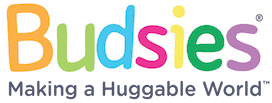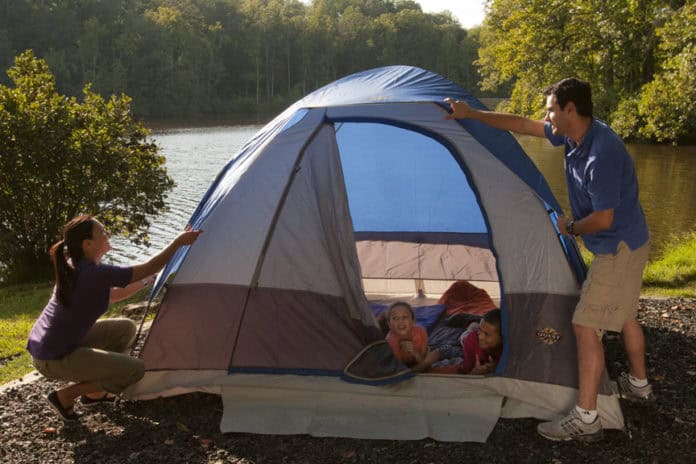Few rites of passage are as exciting as taking a toddler on their first camping trip. It is an opportunity for the entire family to bond over a hot fire as they roast marshmallows and hotdogs. Whether you have been camping since you were a kid or you are just getting started on camping, there are a few ways to keep things fun. Here are just a few tips for camping with toddlers to make your vacation a success.
1. Research the Weather
If you are going camping with toddlers, you will want to be quite conscious of the weather. Young kids are especially vulnerable to weather conditions. Thus, if it turns out to be rainy or too windy, they may have to spend their entire camping trip huddled inside their tent.
Obviously, that is not what you want for your kids when thinking of a camping trip. Some basic research on the internet will quickly help you understand the kind of conditions you can expect at the camping area.
2. Do a Test Run
After you feel that you have prepared for everything, you should do a test run in the backyard. It will help you identify any snags with the gear that you have. For instance, after you choose a spacious camping tent, you want to ensure that the entire family will fit in it. Though the tent you choose may look spacious to you, the entire family might end up not fitting inside.
The test run will also allow toddlers to become used to spending a night in the tent. That way, you do not have to waste the first day of camping trying to calm them down. Instead, you can begin to have fun straight away. This is one of our most recommended tips for camping with toddlers, so don’t skip it!
3. Bring Some Familiar Toys with You
No matter how much you try, the outdoors might prove to be too uncomfortable for the kids. Consequently, there is a need for you to find something that they can find solace in. One way of doing this is to bring their favorite toy with you. It will help to calm them down and give them something with which they can play.
However, do not bring too many of their toys with you. In most cases, just one toy will suffice. The toy will keep them busy and it won’t distract them from enjoying the outdoors.
4. Research the Plants in Your Camping Area
Kids are naturally inquisitive. If they see any wild berries, they might try to eat a few. As soon as you get to the campsite, check to see if there are any harmful wild berries. If you find any, ensure that you warn the kids about them. Additionally, you should ensure that you check up on what they are eating while at the camp. If they wander off into any nearby bushes, be sure to check so that they do not consume any poisonous berries.
5. Choose a place with plenty of activities
Toddlers have a lot of energy, and if you only sit around camp all day, they will become bored quite fast. There are many activities for kids at camping sites. That way, they will have a wonderful experience, and they will want to come again next year. Ensure that you plan for all these different activities in advance. Trying to come up with something when camping could lead to arguments among family members and wasted time.
6. Bring a Headlamp for your Toddler
A good way to keep you little one calm is to keep a headlamp on so that he doesn’t get scared at night while you move around the camp. It might also be fun for them and help to reduce the anxiety that the darkness must cause them. However, do not choose a blinding headlamp. Otherwise, the fun headlamp for your kid may end up being quite distressful for everyone else.
7. Bring Enough Bug spray and sunscreen
While you can stand a few bites, it may not be the same for your toddler. It is especially so if he or she has never been bitten before. The bites will cause a lot of distress, and they may end up avoiding to camp for the rest of their lives.
It is also important that you bring enough sunscreen for the kids. They are especially vulnerable to the sun’s rays, and they may end up with sunburn. Although you will bring enough sunscreen for them, you must also ensure that they are protected from the sun. Whenever possible, try to keep them in the shade under the trees or just outside the tent.
It is also important that you choose the right kind of bug spray and sunscreen for you kids. Look for bug spat made of natural oils that do not have any DEET. It is also important that you speak to your doctor about using bug spray or sunscreen on your kids especially if they are below one year.
8. Bring Layers for Your Kids
Although most campsites have great weather throughout the summer, the weather may change for the worst. Thus, you should bring layers in case things take a turn for the worst. That means you will have to bring plenty of t-shirts, jogging pants, long sleeved pajama sets whatever else your little tyke might need. That way, if the kids get a bit chilly, they do not have to scamper for the safety of their tents.
9. Bring Comfy Beds
Most people will settle for sleeping bags. However, these are not good enough, especially for young kids. Ideally, you should look for toddler cots that are designed for outdoor camping. This way, your kids will not hate camping because of how sore they felt afterwards.
Another popular option is to use airbeds. However, in the outdoors, these types of beds deflate with ease. Trying to inflate an airbed in the middle of the night can be quite stressful.
10. Be Mindful of Kids near the Campfire
Do not assume that the kids will know what to do near the campfire. If no one is mindful of what the kids are doing in the campfire, do not be surprised to find him or her walking straight into it. One way of dealing with this problem is to have a specific campfire sit for the kids. Tell them that they can sit near the campfire only if they agree to sit in a designated area. As a result, you do not have to worry about them accidentally dipping their fingers into any pot at the fireplace.
11. Leave your Electronics in the Bags
When you get to the campfire, do not give kids electronics to play with. If you do that, it will have defeated the whole point of going on a camping trip. Instead, leave your gadgets locked away and enjoy nature. You should only bring your camera along, which you will use to snap photos of your time in the outdoors.
12. Unpack at the Campsite While there is Still Light
Although you will bring some flashlights with you, it is best that you unpack while the sun is shining. Packing in the dark can be stressful, and you may lose some of your items. Besides that, there is a good chance it may end up taking longer, which means you may have to sleep hungry the first night. If you plan to cook your food at the camp, ensure the fireplace is set up before dusk.
13. Bring Some Light snacks
While camping alone, you can decide that you will depend on what you fish in the river. However, that may not be okay if you have your kid with you. It is important that you bring some light foods, which are easy to prepare. That way, if you are unable to catch anything, the kids do not have to sleep hungry.
14. Bring a Backup Heat Source
While most of the times you can cook your meals at the campfire, that may not always be the case. For instance, if it rains outside, your kids will still need to eat. In such an instance, it is important for you to have a backup source of heat such as a propane tank. Either way, you have to ensure that you have a backup source of heat for days when the weather gets out of hand.
15. Bring a Mat for Crawlers
If your kid is still in the crawling stage, ensure that you bring a large enough mat for them. That way, they do not have to crawl in the dirt and probably puncture their palms. A large plastic mat will do the trick. Just ensure that you stay near them so that they don’t wander off the mat.
Conclusion
Remember to choose your activities wisely. While something may seem easy to you, remember that kids can rarely do more than a mile of hiking, especially at high elevation. You also need to choose the hiking route carefully to ensure that it is not too steep. Otherwise, he or she may be too tired to do anything after a single day of hiking. Do you have any additional tips for camping with toddlers that you’d like to see added to this list?



